 Watch the British woman define the American Revolution and attendant American War of Independence.
Watch the British woman define the American Revolution and attendant American War of Independence.
Usually this period begins in 1775, with said war, but I think there's a lot of scope for including articles leading up to it. That would fit in nicely with ending the US Colonial Period in 1763. It would also take us from the beginning of the trouble - the end of the Seven Years War - as none of these eras begin or end in a vacuum.
So here is my very British-centric interpretation for this period of Criminal Acts of Abuse Against Cups of Tea.
The French had attempted to take American colonies to add to their Canadian territories. The British navy sailed over there and, along with 25,000 militia raised in the colonies, saw them off. The war was very expensive and so was the aftermath.
The bill for all of this landed mostly on the British people. Riots and protests ensued, as they pointed out, quite rightly, that the actual beneficiaries (the Americans) were only paying a fraction of the costs. So the order went out to raise the taxes in the colonies.
Despite the fact that these increases were still disproportionately tiny compared to what was being asked of their British counterparts, the American representatives refused. They mostly just didn't want to pay, but it all emerged in the much more media friendly, 'No taxation without representation'.
This blithely ignored the fact that hardly anyone footing the bill in Britain could vote either. Indignation back home caused the British government to pour oil on the fire in America. Loads of draconian laws turned the grumblings of free-loaders into a fully fledged War of Independence.
Amongst the most famous and heinous of events, millions of pounds worth of tea was tipped into Boston Harbor. To add insult to injury, those revolutionary Americans DID NOT then boil up the water in the harbor, add sugar and milk, then drink it.
It could have been the world's biggest teapot, but no, the tea was spoiled. And the British were still left paying the bill for the Seven Years War. But we're not bitter.
Didn't happen like that, Americans? Then write some articles for Wizzley in this category to teach me how wrong I am!


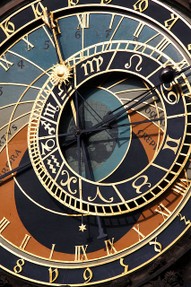 Naming historical ages was always going to be difficult on an international writing platform.
Naming historical ages was always going to be difficult on an international writing platform.


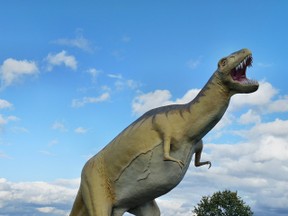 I was being facetious about the dinosaurs. They don't belong in history, despite many movie titles to the contrary.
I was being facetious about the dinosaurs. They don't belong in history, despite many movie titles to the contrary.


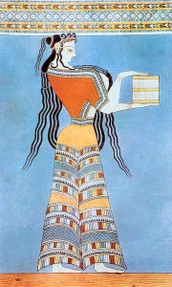 This historical sub-category shouldn't be too controversial to place. It's Greece during the Mycenaean civilization.
This historical sub-category shouldn't be too controversial to place. It's Greece during the Mycenaean civilization. Ever since Homer started telling us tales, the ancient era has faded into view.
Ever since Homer started telling us tales, the ancient era has faded into view. 


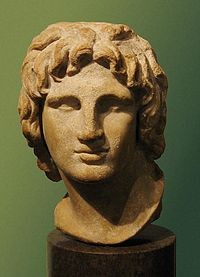 This age is also known as the Hellenistic Period.
This age is also known as the Hellenistic Period. 


 Of course human beings have been exploring and discovering places since the beginning. But the era commonly referred to as the Age of Discovery is largely a medieval European story.
Of course human beings have been exploring and discovering places since the beginning. But the era commonly referred to as the Age of Discovery is largely a medieval European story.


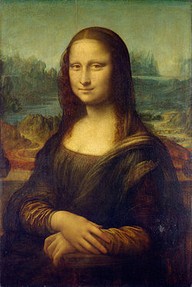 I've taken as my starting point here the almighty artistic battle to build some doors for Florence Cathedral.
I've taken as my starting point here the almighty artistic battle to build some doors for Florence Cathedral.


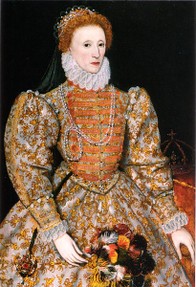 The historical period covered by this category should not cause any controversy. I've designated the time between the Battle of Bosworth and the death of Elizabeth I.
The historical period covered by this category should not cause any controversy. I've designated the time between the Battle of Bosworth and the death of Elizabeth I.







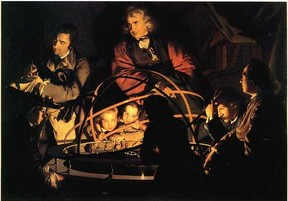 No-one quite agrees on when The Enlightenment really began. You could argue that it was when we first worked out how to light our own fires.
No-one quite agrees on when The Enlightenment really began. You could argue that it was when we first worked out how to light our own fires.


 Another easy era to define, this one begins with the coronation of George I, then passes through the reigns of Georges I-IV.
Another easy era to define, this one begins with the coronation of George I, then passes through the reigns of Georges I-IV.  The downside of Enlightenment tends to be dangerous ideas like 'liberty', 'equality' and 'fraternity' getting lots of people killed. I'm looking at you, France.
The downside of Enlightenment tends to be dangerous ideas like 'liberty', 'equality' and 'fraternity' getting lots of people killed. I'm looking at you, France.


 Watch the British woman define the American Revolution and attendant American War of Independence.
Watch the British woman define the American Revolution and attendant American War of Independence.


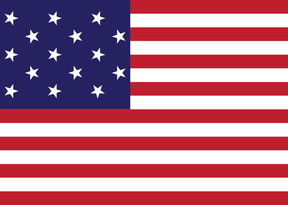 We're still with the USA here! This is actually a named historical era for the USA, so I've lifted the dates wholly from that country's text books.
We're still with the USA here! This is actually a named historical era for the USA, so I've lifted the dates wholly from that country's text books.


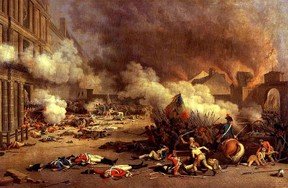 One of the easiest ages to define is this Wizzley history category.
One of the easiest ages to define is this Wizzley history category. 
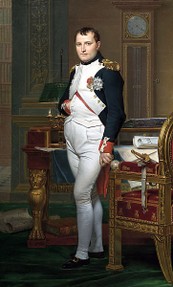 While this is still fundamentally a French category, Napoleon's imperialism means that much of the globe is also involved.
While this is still fundamentally a French category, Napoleon's imperialism means that much of the globe is also involved.


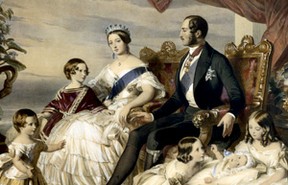 To say that this category should be a British story is both correct and horrifically wrong.
To say that this category should be a British story is both correct and horrifically wrong. 



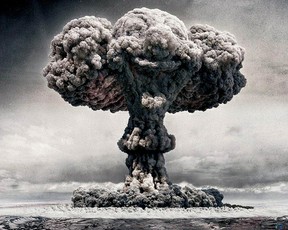 There are so many different dates given for the Cold War, that the beginning is largely a matter of subjective opinion.
There are so many different dates given for the Cold War, that the beginning is largely a matter of subjective opinion. 





 This was so much harder to date than I anticipated! As far as I was concerned the hey-day of all that peace, love and sexual freedom was 1967-1969, despite me frequently labeling myself an 'old hippie'.
This was so much harder to date than I anticipated! As far as I was concerned the hey-day of all that peace, love and sexual freedom was 1967-1969, despite me frequently labeling myself an 'old hippie'.
 Welcome to the Third Industrial Revolution! We've all moved out of the fields, out of the factories and behind the screen of a computer instead.
Welcome to the Third Industrial Revolution! We've all moved out of the fields, out of the factories and behind the screen of a computer instead.


 I've labelled this 'the future', but really the concept came from a paper by Rita J. King in 2007.
I've labelled this 'the future', but really the concept came from a paper by Rita J. King in 2007. 


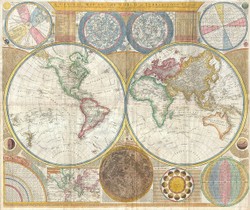
 St Tydecho's Churches in West Waleson 09/03/2014
St Tydecho's Churches in West Waleson 09/03/2014
 Goodies for an Outlander Premiere Partyon 03/06/2015
Goodies for an Outlander Premiere Partyon 03/06/2015
 Holocaust Memorial Day Interview with Rainer Höss, Grandson of Rudolf Architect of Auschwitzon 01/24/2015
Holocaust Memorial Day Interview with Rainer Höss, Grandson of Rudolf Architect of Auschwitzon 01/24/2015
 Romantic Valentine Gifts for an Outlander Fanon 01/16/2015
Romantic Valentine Gifts for an Outlander Fanon 01/16/2015

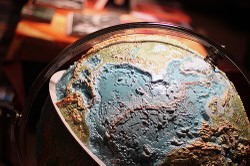

The Debate Starts Here! Which era(s) would you like to amend, move or change completely?
I have had little interest in history until I started looking at my ancestry. Now I am very involved in finding out about them and the times they lived. Yet it spans several of your categories. And the time and place I am most interested in studying is often neglected, Metz in the 600s.
But . . . I don't want the space age to end at 1990! I am admittedly quite biased on that issue for several reasons. (Grain of salt time)
Seriously, it's a wonderful article that will should prove useful, not only for categorizing Wizzley articles, but also as a general resource.
Congratulations on a well deserved Editor's Choice Award!
Thank you very much too. :D
@JoHarrington - 2uesday said what I was thinking. Amazing!
Thank you very much. :)
I'm glad to see that I've inspired you to write about history here. Or was that personal research?
It is very informative, putting everything in order in this way, I am going to start some history research
Maggie - Sometimes we have to create our own strong platforms, and history is well in the mix on Wizzley. I look forward to reading your articles.
My degree is in history, and I've often thought of writing about my studies online, but I always figured the information would be lost behind the party ideas and weight loss articles. Nice to learn that Wizzley has a strong platform for history.
Thank you very much; and I'm glad that it's useful for you. I love history and I did this over several days, so it wasn't too bad.